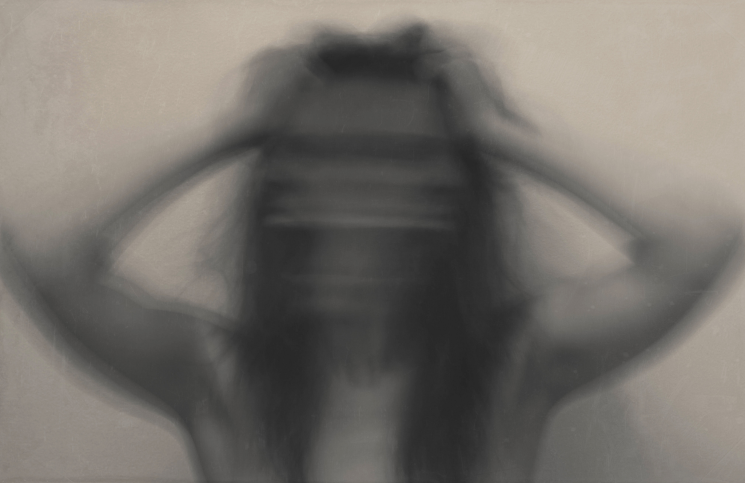Panic attacks are one of the very worst things that an anxiety sufferer will ever have to deal with. Worse than the symptoms are the blank looks you’ll so often get from people who’ve never dealt with the physical and mental symptoms that ravage the body when a panic attack occurs.
Common Symptoms of a Panic Attack
• Breathlessness: Including the feeling that you can’t catch your breath – a weight on chest feeling, rapid breathing, or the inability to breath deeply through your abdomen. Since most panic attacks are hormonal and fear-based by nature, this symptom leads to overbreathing (hyperventilation), which leads to heartbeat-related symptoms and/or fainting spells.
• Irregular Heartbeat: Irregular heartbeat symptoms include rapid heartbeat, skipped beats (palpitations), or having the heart stop for a few seconds at a time. The inability to regain control of the heartbeat makes it very difficult to calm down.
• Physical Pain: One of the most common and worse complications of a panic attack, physical pain can occur anywhere: chest (very common), arms, legs, jaw, head, feet, hands. Often the pain mirrors common warning signs of a heart-attack or stroke, leading to increased visits to the emergency room, where baffled physicians may soon write you off as a hypochondriac.
• Loss of Control: The loss of control includes motor control, feeling of being too hot or cold, muscle spasms, ringing in the ears, vision loss, out-of-control thoughts (impending doom, fear, helplessness), choking sensations, and many others.
Keys to Gaining Back Control of Your Mind and Body
Regardless of what anyone around you might say, it’s important for you to remember that you’re not going crazy. There’s most certainly a reason why you’re having them. Causes range from the very simple such as uncontrolled stress, bad diet, poor thyroid function, and asthma – to the more serious such as heart and lung disease, diabetes, and certain types of cancers.
Don’t let the paragraph above scare you, especially if you’re currently suffering from, or have recently had a panic attack. As you’ve no doubt read about before, panic attacks can be a warning sign of a variety of serious mental or physical problems, which you and your doctor will have to rule out.
But…
Assuming you have a serious health problem, without a proper diagnosis from your doctor, is a sure-fire way to make your symptoms worse, since fear is usually where the problem begins.
However, many people suffer from occasional, even frequent panic attacks and it’s nothing but uncontrolled stress causing the problem. When you let various stressors in your life go unchecked and carry all that worry, anger, resentment, etc., around with you for too long, the mind will rebel to let you know it’s time to “mind your thoughts”.
Stress and Exercise
So often the process starts with too much cortisol (ie., stress hormone) builds in your bloodstream. A simple trick to cure stress-related panic attacks before they happen is simply to ensure you’re getting at least 20 minutes of exercise every day.
This doesn’t mean you have to join a gym. A simple walk around a city block or two is often all the body needs to regulate stress hormones and find balance again. People who spend hours sitting every day, and don’t move very much in their downtime are the most common to be afflicted with sudden panic attacks.
Coping With a Panic Attack
Getting through a serious panic attack isn’t easy, especially the first time or two you experience one.
Next time you’re gripped by panic attack symptoms use one, or all of these 3 great techniques to regain control:
1. Force yourself to control the tempo of you’re breathing: This is the most effective way to regain control. Breathe in, hold for 5 seconds, then slowly exhale for at least 5 seconds. This tempo will equal approximately 4 – 6 breaths per minute, which will help your heart to slow down while also preventing out-of-control hyperventilation to set in. This breathing technique may take some time to master, but once you do, you’ll regain control faster each time an attack occurs, resulting in less fear of future attacks too!
2. Blank your mind: This is another technique that takes practise. Often a yoga or meditation lesson can help, if you don’t understand how to wipe the slate in your mind clean. Panic attacks are fear-driven, whether that fear is conscious or buried deep in the back of your mind. Over-thinking will only make the physical symptoms worse. You might find that turning on the television or stereo works best to blank your mind. Others might benefit from reading, or exercise to turn their brain off.
3. Exercise: The fear that you’re going to have a heart attack will make it hard to simply go out and start to exercise, but if your doctor has cleared you of any serious health problems that would make exercise dangerous, this is the easiest way to turn panic symptoms off. Mild, moderate exercise is a great way to prevent attacks from happening to begin with. Intense exercise at 60 – 75% of your max heart rate falls right in line with tip #2. Endorphins (happy hormones) are released during exercise, minimizing the destructive feelings and hormones that lead to panic attacks in the first place.
Summary
Using simple breathing techniques, eating right, getting regular exercise, and talking with your doctor are all tools that can help you cope with current attacks, and prevent future panic attacks from happening. You’re not alone. Join this Forum to learn more coping techniques and talk with other suffers.




